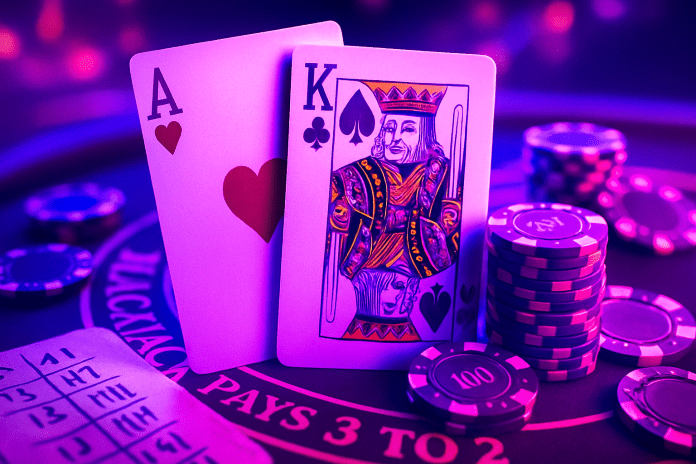
Card counting is a skill that transforms blackjack from a game of chance into a game of advantage. The Hi-Lo system is the most widely used and beginner-friendly method, enabling players to track the deck’s composition and increase bets when the odds shift in their favor.
This guide will walk you through everything you need to learn, practice, and apply Hi-Lo card counting like a professional.
More Pro tips on Slotzone
What Is Hi-Lo Card Counting?
The Hi-Lo system assigns a value to every card dealt in blackjack. By tracking these values, you can estimate whether the remaining cards in the deck favor the player (more high cards) or the dealer (more low cards).
Card Value Assignments:
| Card | Count Value | Impact |
| 2, 3, 4, 5, 6 | +1 | Favors the player; increase running count |
| 7, 8, 9 | 0 | Neutral; no effect on count |
| 10, J, Q, K, Ace | -1 | Favors the dealer; decrease running count |
The Running Count
As cards are dealt, you keep a mental tally called the running count:
- +1 for every 2–6 seen
- 0 for every 7–9
- -1 for every 10–Ace
Example:
If the cards seen are: 3, 5, Q, 8, Ace
Your count = +1 (3) +1 (5) -1 (Q) 0 (8) -1 (Ace) = 0
The True Count
In multi-deck games, the running count needs to be adjusted to account for how many decks remain. This gives you the true count—a more accurate representation of your edge
Formula:
True Count = Running Count ÷ Number of Decks Remaining
Example:
Running Count = +6
Decks remaining = 3
True Count = 6 ÷ 3 = +2
Adjusting Your Bet Size
The whole point of counting cards is to bet more when you have the edge.
| True Count | Suggested Action |
| 0 or less | Bet the table minimum |
| +1 | Slight edge; still bet minimum |
| +2 or higher | Increase bet; higher count = bigger bet |
| +3 or more | Favorable shoe—aggressive betting zone |
Pro Tip: Use a bet spread (e.g., 1–8 units) depending on your bankroll and risk tolerance.
Practicing the Hi-Lo System
Phase 1: Single-Card Drills
- Flip through a deck, one card at a time.
- Say the count value aloud.
- Goal: Finish a deck with an exact final running count of 0.
Phase 2: Timed Deck Runs
- Count through a full deck as quickly as possible.
- Goal: 25 seconds or less, error-free.
Phase 3: Add Distractions
- Practice with background noise, music, or people talking.
- Simulates a real casino environment.
Phase 4: Estimate Decks Remaining
- Practice visually estimating “decks remaining” in discard trays.
How to Stay Undetected
Casinos allow card counting, but they don’t like it.
Tips to Stay Under the Radar:
- Vary bet sizes subtly (don’t jump from $10 to $500 in one hand)
- Avoid team play unless well-trained
- Don’t stare at the discard tray
- Appear social and casual; engage dealers and other players
- Occasionally make a small mistake on purpose (intentional camouflage)
Combining Strategy with Counting and Expected Value & Win Rate
Card counting doesn’t replace basic strategy—it complements it. Read more




